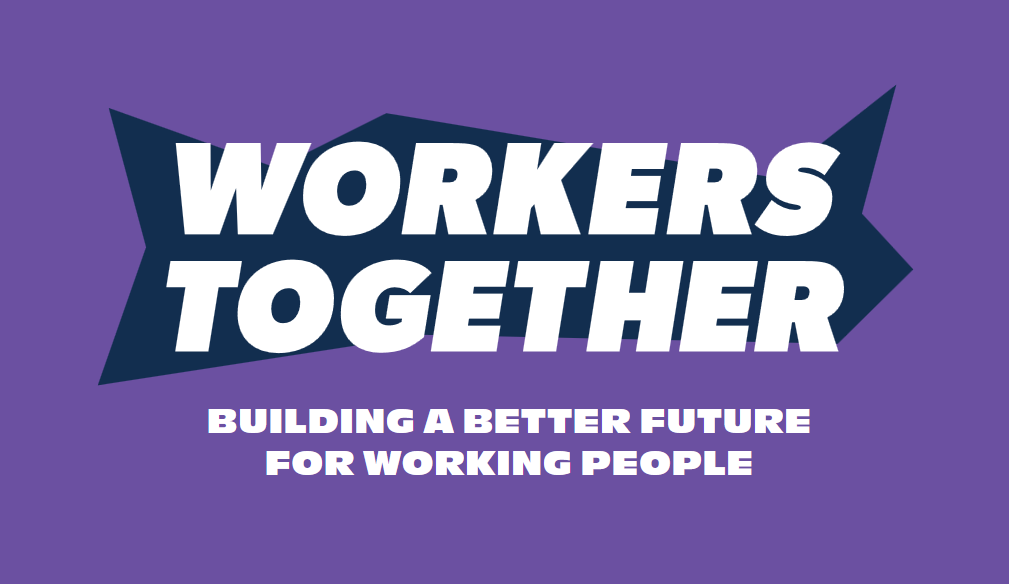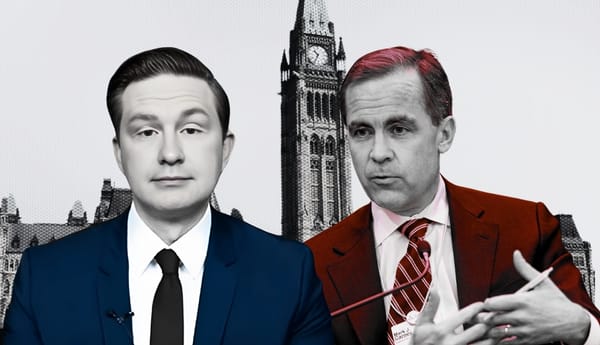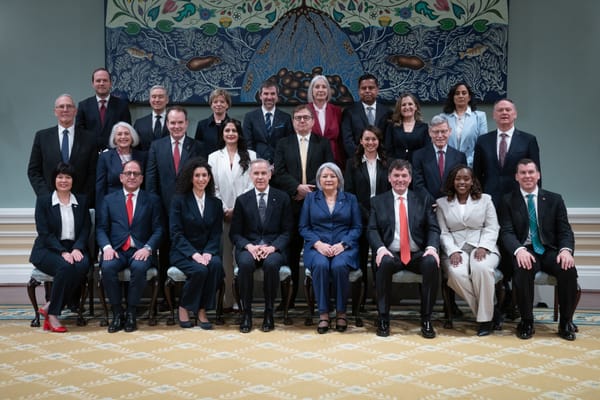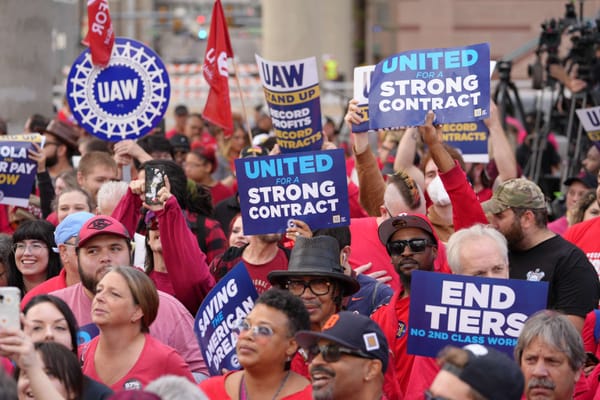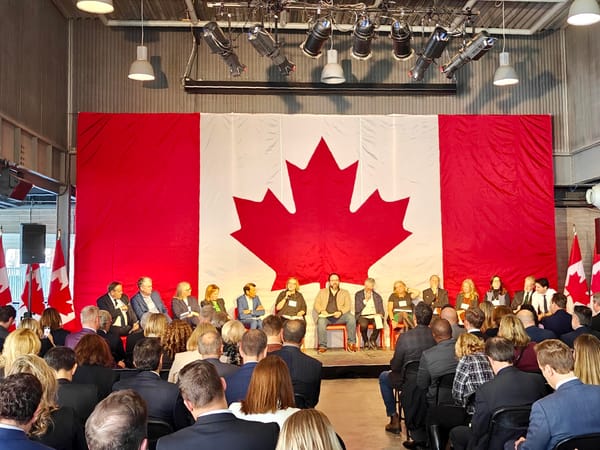A curious phenomenon has developed in several rich capitalist countries. Right-wing politicians of the so-called “populist” variety are “mad as hell” at central banks. The new leader of the Conservative Party of Canada, Pierre Poilievre, is one such figure.
Poilievre’s ability to channel popular anger during a period of high inflation and economic instability should worry us. Although his diagnosis of capitalism’s current problems seems heavy on rhetoric but light on ideas, lurking beneath the surface of “skippy’s” policy proposals and sound bites is a dangerous economic program. The reasoning behind his anger at the Bank of Canada offers a window into that program.
Since inflation emerged as a pressing economic issue, Poilievre has sought to make political hay of it. In Poilievre’s telling, “Justinflation” results from the Bank of Canada “printing money,” which the federal Liberals then used to finance “inflationary deficits” during the pandemic. As the new Conservative leader incessantly puts it, inflation results from too much money chasing too few goods. His alternative approach would be to “unleash the power of free enterprise” and “produce more goods and services.” By the latter, he of course means cut government spending, reduce taxes and slash regulations — in short, “to make Canada the freest country on earth [for business].”
Does this sound familiar? It should. Poilievre’s policy proposals, such as they are, are basically the same warmed-over trickle-down economics that have characterized neoliberalism since the 1980s, with a splash of “sound money” theory for good measure.
There’s nothing terribly new here. What’s unique is the particular conjecture in which we and Pierre find ourselves. While the Liberals (pushed by the New Democrats) had to respond to the COVID-19 pandemic with semi-adequate income supports, they’ve been largely willing to abandon a just recovery for “fiscal consolidation” in the face of historic inflation. Without a meaningful response to the resultant cost-of-living crisis from the government, Poilievre has been able to position his revanchist and retrograde politics and policies as “solutions” to the problems ordinary people face.
A brief look at his proposals thus far shows otherwise.
Central to Poilievre’s economic program is a full-scale assault on the federal government, as well as on provincial and municipal governments through the funding power of the feds. For example, he has vowed to introduce a “pay as you go law” requiring the federal government to “find a dollar of savings for every dollar of new spending” (i.e., an effective freeze on new federal spending). He also plans to appoint a “Tax Reform Task Force” to report on efforts to cut income taxes and the cost of filing taxes, and to bring investment to Canada. To force lower levels of government to act according to his plans, he wishes to make housing, infrastructure and transit transfer payments contingent on ‘reducing red tape’ and speeding up various permitting processes.
He has also promised to eliminate the federal carbon tax and boost oil and gas production and pipeline construction. As part of his “energy policy,” he wants to end Canada’s “dependence” on oil from “foreign dictators,” despite the fact that Canada is a net energy exporter and it’s private corporations who buy oil from abroad, not the Canadian government. Needless to say, his energy plan would be a climate disaster.
Despite much talk about inflation and government spending, Poilievre rarely if ever mentions lagging wages as a source of workers’ troubles, and he certainly has no time to countenance the idea that corporate greed and price-gouging might be at the heart of current inflation. Instead, he argues that high taxes disincentivize work in Canada, irrespective of the fact that Canada has a comparatively low “tax wedge,” i.e. the combined tax on each dollar of income, accounting for income tax and payroll deductions. (For the record, Canada is 27th among the 38 OECD member states on this measure).
But it’s in the area of “monetary policy” where Poilievre goes most off the rails. Despite heaping scorn on the Governor of the Bank of Canada, Tiff Macklem, Poilievre has largely been quiet about whether or not he thinks interest rate hikes are the appropriate way to deal with currently elevated inflation. Instead, Poilievre has chosen maximalist rhetoric, threatening to fire Macklem if he’s elected Prime Minister, and blaming Prime Minister Justin Trudeau, the New Democrats, and deficit spending for high prices.
If you connect all the dots, Poilievre’s position seems to be that rate hikes are necessary but only because of the profligate actions of the Bank and federal government. This begs the question: What would a Pierre Poilievre Conservative government have hypothetically done during a global health emergency necessitating intentional unemployment? I have a couple of guesses, and they don’t involve making sure workers have income while they protect themselves from the virus.
Poilievre’s approach to finance and monetary policy sounds like something out of the 19th century — opposition to deficit spending on demand management and reverence for a world where price stability is the objective, regardless of whether that means unemployment and destitution for the working class (this also helps explain his fascination with highly volatile and socially destructive cryptocurrencies).
Poilievre has repeatedly called for the return of “central bank independence” (it’s unclear why he believes such independence ceased) and firm commitment to the Bank’s low inflation mandate (i.e., he’s opposed to the central bank considering employment as a factor in rate setting). He rails against the Bank of Canada, despite the fact that central bank independence to insulate monetary policy from the democratic pressures of the public has long been at the centre of the economic orthodoxy that he espouses. It’s bewildering to behold.
This week, Statistics Canada reported that inflation had fallen back to 7 per cent, year-over-year, in August, a 0.6 percentage point drop from July and down further from its peak of 8.1 per cent in June. With wages rising at 5.4 per cent in August, the real earnings gap shrank somewhat, but prices continue to rise faster than average incomes. To add insult to injury, food prices continued to soar well above both average wages and overall inflation. Food prices shot up by 10.9 per cent from one year ago, the highest annual food inflation since 1981. These figures fall on the heels of the Bank of Canada again raising its policy interest rate by 75 basis points earlier this month.
The irony is that, to a certain extent, those making decisions at the Bank of Canada seem to agree with Poilievre — if not with his diagnosis, then at least of the necessity to reign in inflation regardless of the employment and social consequences. Despite high energy and food prices and supply chain disruptions caused by the pandemic and war in Ukraine being the generally accepted causes of current inflation, the Bank persists in hiking interest rates.
So concerned with “inflationary expectations” becoming embedded via the dreaded “wage-price spiral” are Macklem and Co. that they’ve managed to choke economic growth and shrink total employment, all in the name of reducing inflation by a little more than one percentage point in three months. Central bankers in both Canada and the United States are entirely willing to push their economies into recession to break the back of inflation. The millions of unemployed workers who would suffer as a result be damned.
In the face of this, the Bank of Canada is growing concerned with its “public image,” wary as it is of a restive public and flack from the political right. It has apparently hired public relations specialists and is working on honing its message to convince the public that the cure of unemployment-inducing interest rate hikes is better than the disease of inflation.
We should all be furious at the Bank of Canada for pursuing price stability without regard for its effect on employment. The risk, however, is that our anger is insufficiently distinguished from that of people like Poilievre. He’s angry, but for very different reasons.
Relatedly, while Poilievre continues to paint much of the modest government spending meant to alleviate the burdens of the cost-of-living crisis as “inflationary,” we should be calling on the federal government to deal with the resultant affordability issues as a matter of fiscal policy. Finance Minister and Deputy Prime Minister Chrystia Freeland maintains that fighting inflation is the purview of the Bank of Canada. That’s the case only if you think fighting inflation means hiking interest rates alone.
We continue to need a robust left response to inflation that centres on support for workers and low-income people and taxes on the wealthy. The pandemic emergency necessitated large public spending and intervention. If someone now has to pay, it should be those who can afford it, particularly the 1 per cent who saw their gargantuan wealth grow.
The longer we fail to articulate that message, the more space Poilievre has to pitch his retrograde policies as “solutions” to the affordability crisis.



